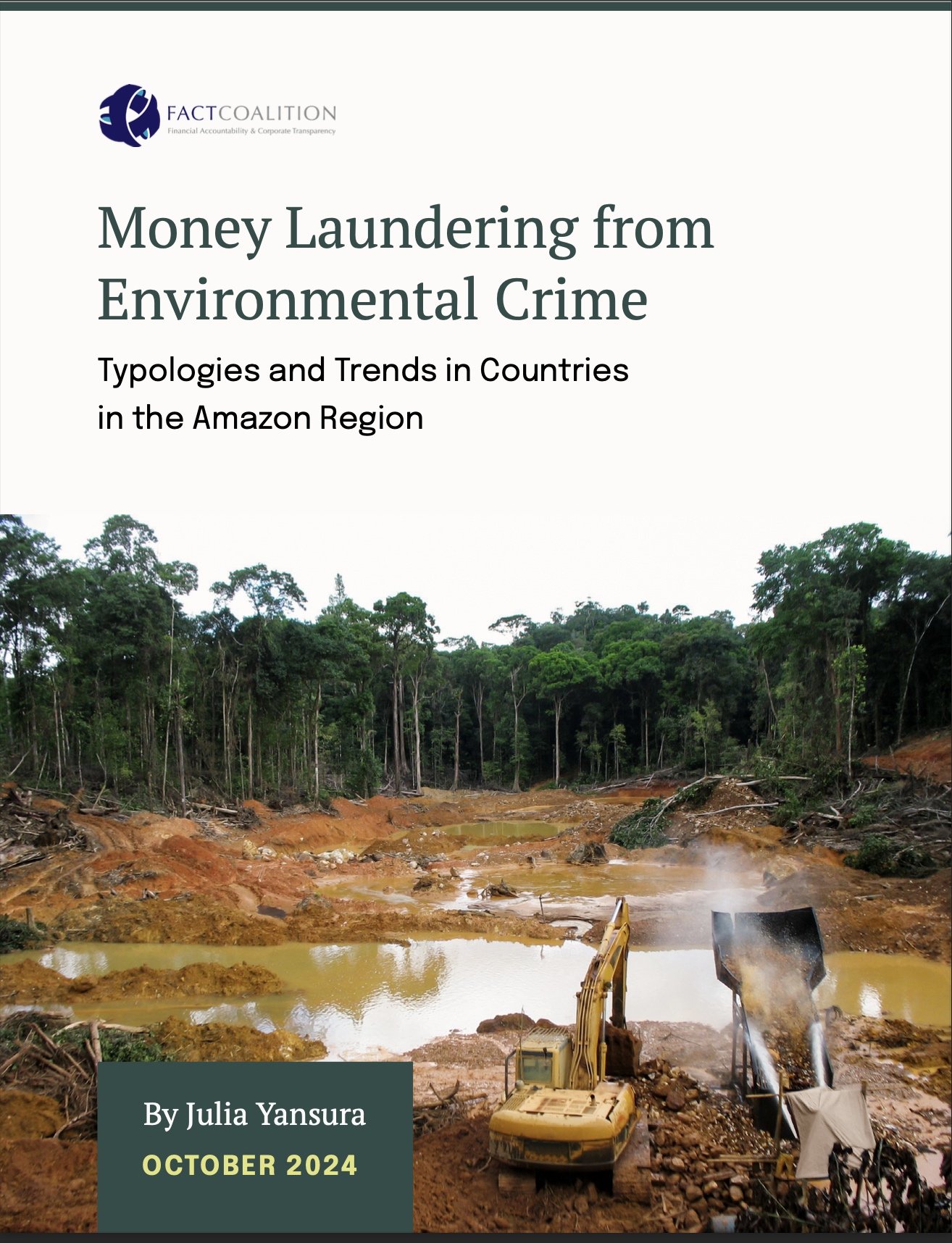What can we learn from 230 environmental crimes committed in countries in the Amazon region over the past ten years? FACT’s latest report analyzes publicly available case data to better understand how these crimes are committed and how their associated profits are laundered. By understanding regional trends, typologies, and red flags, this report aims to inform policy discussions and law enforcement efforts in the Amazon region to curtail illegal deforestation, protect local communities, and strengthen the rule of law.
As a U.S. organization working on public policy, FACT also hopes that this report will inform U.S. efforts to address environmental crime and illicit finance. Through the 2024 Amazon Region Initiative Against Illicit Finance, the U.S. Treasury Department has committed to enhanced information sharing, new “follow the money” training programs, and joint investigations with countries in the Amazon region on issues pertaining to environmental crime. By taking stock of current needs and realities in the region, this report provides insights on the types of information sharing, technical assistance, and collaboration that are most needed to maximize the impact of the Amazon Region Initiative.
Click here to read the report in Spanish.

